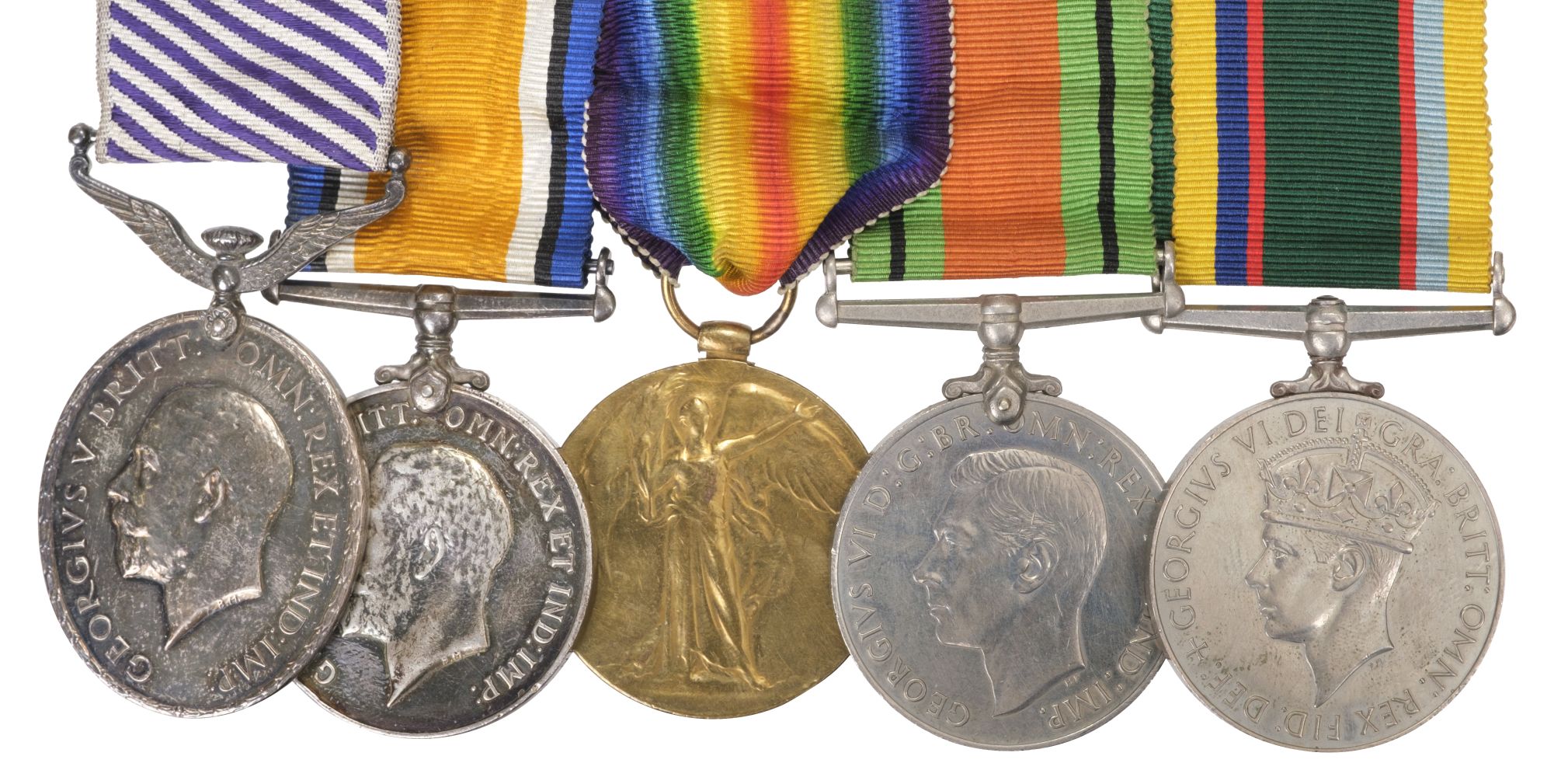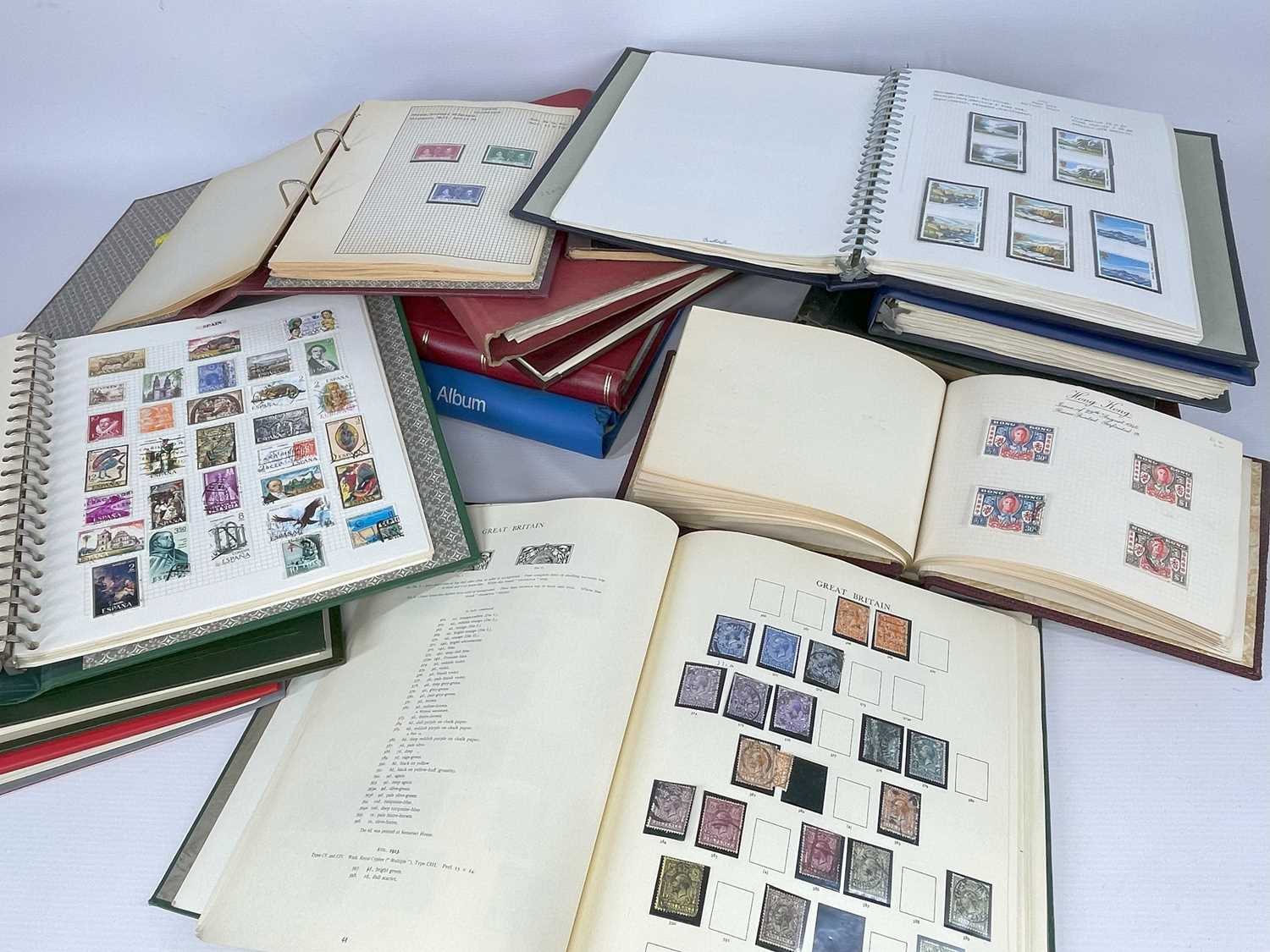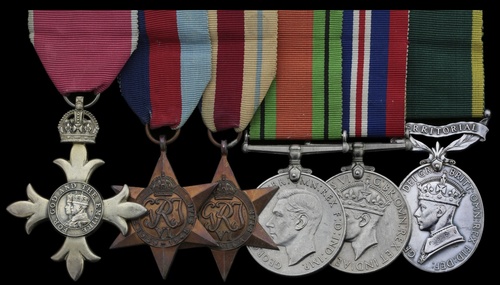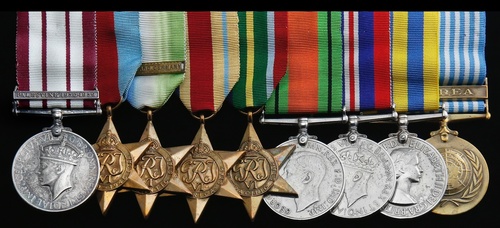A post-War ‘Aden’ B.E.M. for Gallantry pair awarded to Private A. D. Kent, 1st Battalion, The Royal Anglian Regiment, who on two separate occasions gave essential initial first aid and care to comrades who had been grievously wounded in terrorist explosions, keeping them alive during the crucial ‘golden hour’ until they could receive skilled medical care British Empire Medal, (Military) E.II.R. (23921727 Pte. Anthony D. Kent, R. Anglian); General Service 1962-2007, 2 clasps, Radfan, South Arabia (23921727 Pte. A. D. Kent, B.E.M., 1. E. Anglian) nearly extremely fine (2) £600-£800 A post-War ‘Aden’ B.E.M. for Gallantry pair awarded to Private A. D. Kent, 1st Battalion, The Royal Anglian Regiment, who on two separate occasions gave essential initial first aid and care to comrades who had been grievously wounded in terrorist explosions, keeping them alive during the crucial ‘golden hour’ until they could receive skilled medical care British Empire Medal, (Military) E.II.R. (23921727 Pte. Anthony D. Kent, R. Anglian); General Service 1962-2007, 2 clasps, Radfan, South Arabia (23921727 Pte. A. D. Kent, B.E.M., 1. E. Anglian) nearly extremely fine (2) £600-£800 B.E.M. London Gazette 14 September 1965: ‘On 12 March 1965, Private Kent was with his platoon carrying out duties in aid of the civil power based on Sheikh Othman Police Station. Although trained as a stretcher bearer, he was a normal member of a rifle section. At about 2030 hours a terrorist rocket exploded in Platoon Headquarters wounding the Platoon Sergeant and the radio operator. The Platoon Sergeant, Sergeant Smith, received extremely severe facial injuries, the front of his face above the lower jaw being blown free and attached only by a skin flap. Private Kent immediately gave first aid to Sergeant Smith, who was bleeding profusely and for the next twenty-five minutes prevented him from either choking or bleeding to death. It is the opinion of Wing Commander E. R. Griffiths, the consultant in Orthopaedic Surgery at the RAF Hospital Steamer Point, who saw Smith on Admission, that the first aid treatment given by Private Kent was a major contribution towards Smith’s survival. On 31 December 1964 Private Kent had also been present immediately after a mine exploded in the Wadi Taym, killing Private Fraser, gravely wounding Corporal Andrews and seriously injuring Private Barrell. On that occasion also, Private Kent administered first aid and treatment to both the living casualties until skilled medical assistance arrived. Private Kent was eighteen in July 1964. On both these occasions the skill of this young soldier exercised under difficult and dangerous conditions undoubtedly helped save the lives of his comrades.’ Antony David ‘Tony’ Kent was born in Norwich in 1946. After leaving school he enlisted in the army and was able to join his local county regiment, which at that time was 1 East Anglian Regiment (being renamed 1st Battalion Royal Anglian Regiment from 1 July 1964). In January 1964 it departed from Felixstowe for a two-year residential tour in Aden as a garrison battalion. It was based at the modern Waterloo Barracks on the isthmus joining the mainland to Aden city, which was built in and around an extinct volcano (mostly surrounded by the sea). Kent was a member of 7th Platoon, ‘B’ Company, and was also trained for stretcher bearer duties during conventional war, which suggests that he was taught basic first aid skills and also became a member of the regimental band (which traditionally provided first-aid parties in battle). The first manifestation of the serious trouble that was to ensue occurred, not in Aden itself, but in its hinterland, in the mountainous area known as the Radfan, through which the road from Aden passed on its way to the Emirate of Dhala, 80 miles to the north, where there was a British garrison. The Dhala area was close to the Yemen frontier and had always been turbulent. Sending convoys from Aden to Dhala required a two-day operation wit
A post-War ‘Aden’ B.E.M. for Gallantry pair awarded to Private A. D. Kent, 1st Battalion, The Royal Anglian Regiment, who on two separate occasions gave essential initial first aid and care to comrades who had been grievously wounded in terrorist explosions, keeping them alive during the crucial ‘golden hour’ until they could receive skilled medical care British Empire Medal, (Military) E.II.R. (23921727 Pte. Anthony D. Kent, R. Anglian); General Service 1962-2007, 2 clasps, Radfan, South Arabia (23921727 Pte. A. D. Kent, B.E.M., 1. E. Anglian) nearly extremely fine (2) £600-£800 A post-War ‘Aden’ B.E.M. for Gallantry pair awarded to Private A. D. Kent, 1st Battalion, The Royal Anglian Regiment, who on two separate occasions gave essential initial first aid and care to comrades who had been grievously wounded in terrorist explosions, keeping them alive during the crucial ‘golden hour’ until they could receive skilled medical care British Empire Medal, (Military) E.II.R. (23921727 Pte. Anthony D. Kent, R. Anglian); General Service 1962-2007, 2 clasps, Radfan, South Arabia (23921727 Pte. A. D. Kent, B.E.M., 1. E. Anglian) nearly extremely fine (2) £600-£800 B.E.M. London Gazette 14 September 1965: ‘On 12 March 1965, Private Kent was with his platoon carrying out duties in aid of the civil power based on Sheikh Othman Police Station. Although trained as a stretcher bearer, he was a normal member of a rifle section. At about 2030 hours a terrorist rocket exploded in Platoon Headquarters wounding the Platoon Sergeant and the radio operator. The Platoon Sergeant, Sergeant Smith, received extremely severe facial injuries, the front of his face above the lower jaw being blown free and attached only by a skin flap. Private Kent immediately gave first aid to Sergeant Smith, who was bleeding profusely and for the next twenty-five minutes prevented him from either choking or bleeding to death. It is the opinion of Wing Commander E. R. Griffiths, the consultant in Orthopaedic Surgery at the RAF Hospital Steamer Point, who saw Smith on Admission, that the first aid treatment given by Private Kent was a major contribution towards Smith’s survival. On 31 December 1964 Private Kent had also been present immediately after a mine exploded in the Wadi Taym, killing Private Fraser, gravely wounding Corporal Andrews and seriously injuring Private Barrell. On that occasion also, Private Kent administered first aid and treatment to both the living casualties until skilled medical assistance arrived. Private Kent was eighteen in July 1964. On both these occasions the skill of this young soldier exercised under difficult and dangerous conditions undoubtedly helped save the lives of his comrades.’ Antony David ‘Tony’ Kent was born in Norwich in 1946. After leaving school he enlisted in the army and was able to join his local county regiment, which at that time was 1 East Anglian Regiment (being renamed 1st Battalion Royal Anglian Regiment from 1 July 1964). In January 1964 it departed from Felixstowe for a two-year residential tour in Aden as a garrison battalion. It was based at the modern Waterloo Barracks on the isthmus joining the mainland to Aden city, which was built in and around an extinct volcano (mostly surrounded by the sea). Kent was a member of 7th Platoon, ‘B’ Company, and was also trained for stretcher bearer duties during conventional war, which suggests that he was taught basic first aid skills and also became a member of the regimental band (which traditionally provided first-aid parties in battle). The first manifestation of the serious trouble that was to ensue occurred, not in Aden itself, but in its hinterland, in the mountainous area known as the Radfan, through which the road from Aden passed on its way to the Emirate of Dhala, 80 miles to the north, where there was a British garrison. The Dhala area was close to the Yemen frontier and had always been turbulent. Sending convoys from Aden to Dhala required a two-day operation wit



/77777/Internet%20Image%201.jpg)


/130042/Internet%20Image%201.jpg)

/90366/Internet%20Image%201.jpg)
/113307/Internet%20Image%201.jpg)
/112598/Internet%20Image%201.jpg)
/77776/Internet%20Image%201.jpg)
/113331/Internet%20Image%201.jpg)

/72236/Internet%20Image%201.jpg)
Try LotSearch and its premium features for 7 days - without any costs!
Be notified automatically about new items in upcoming auctions.
Create an alert